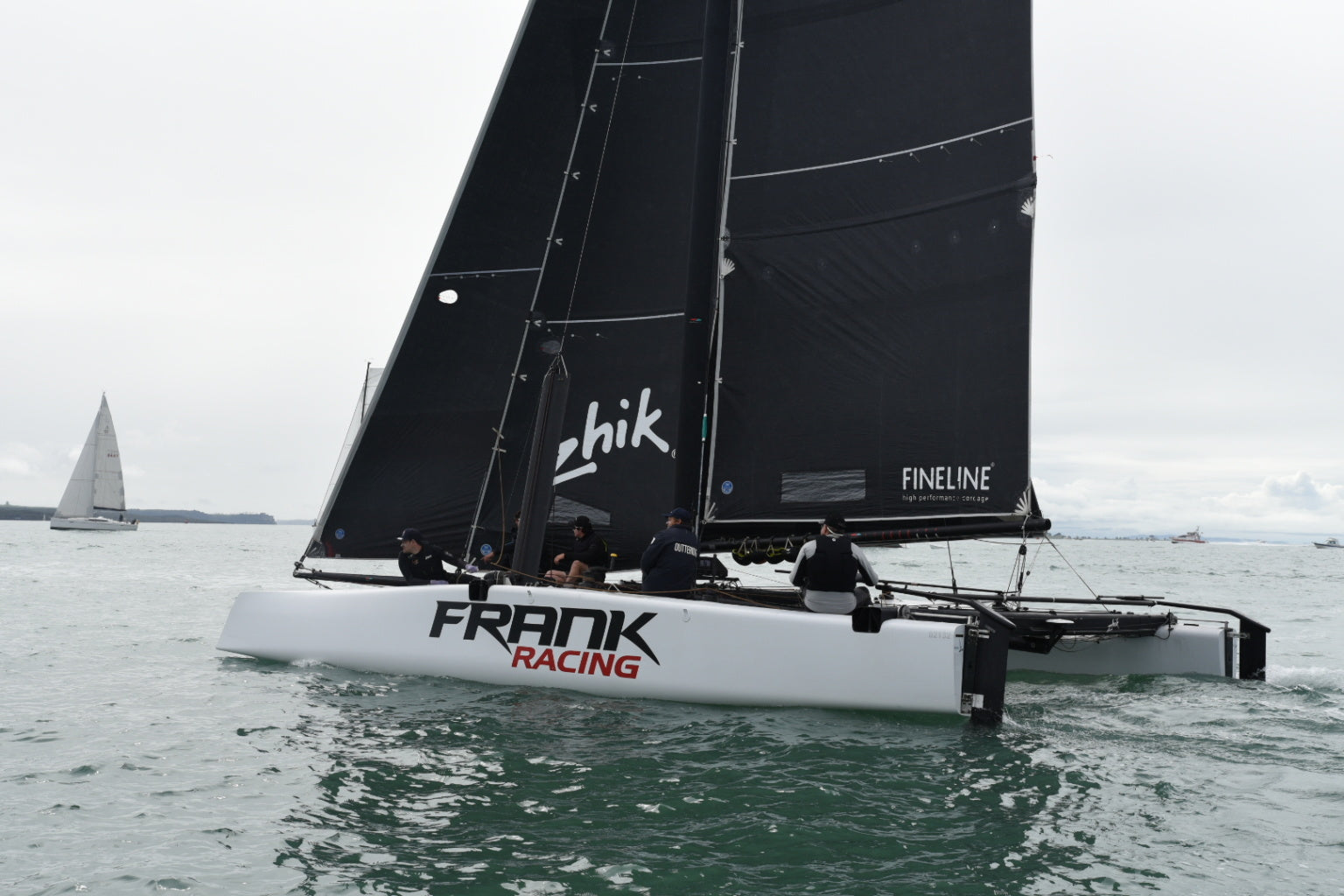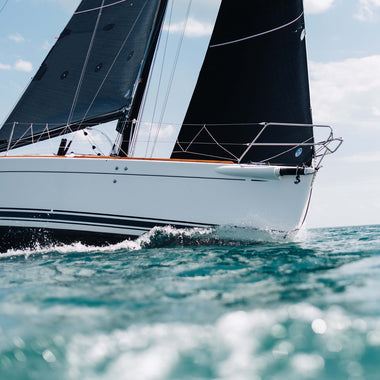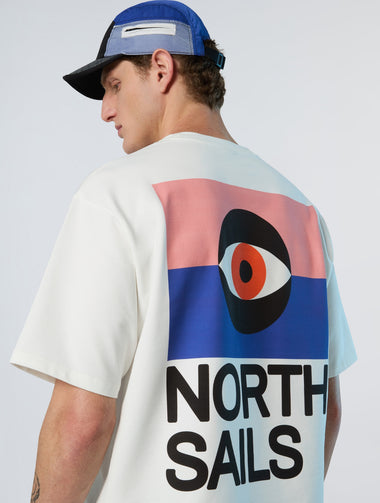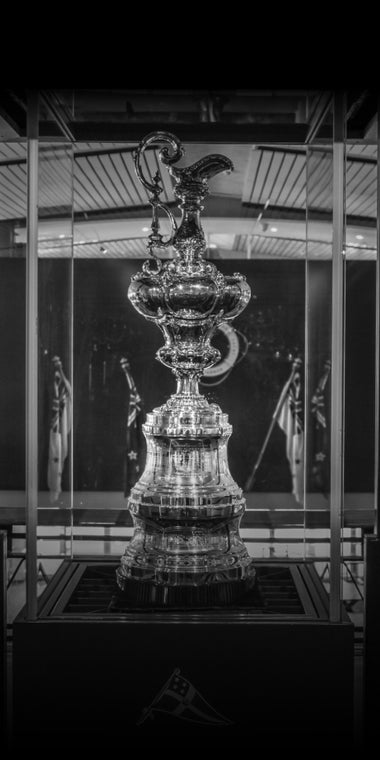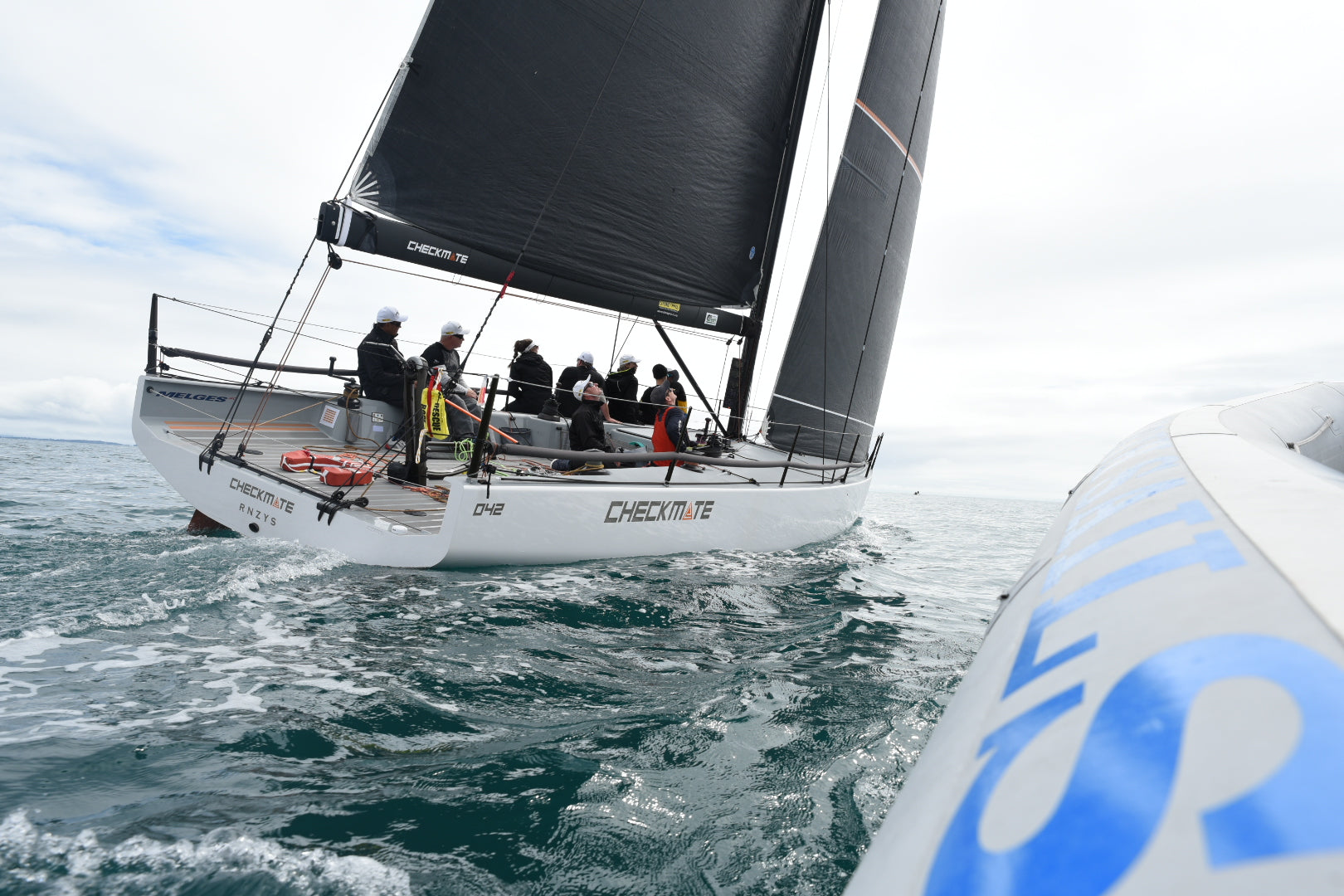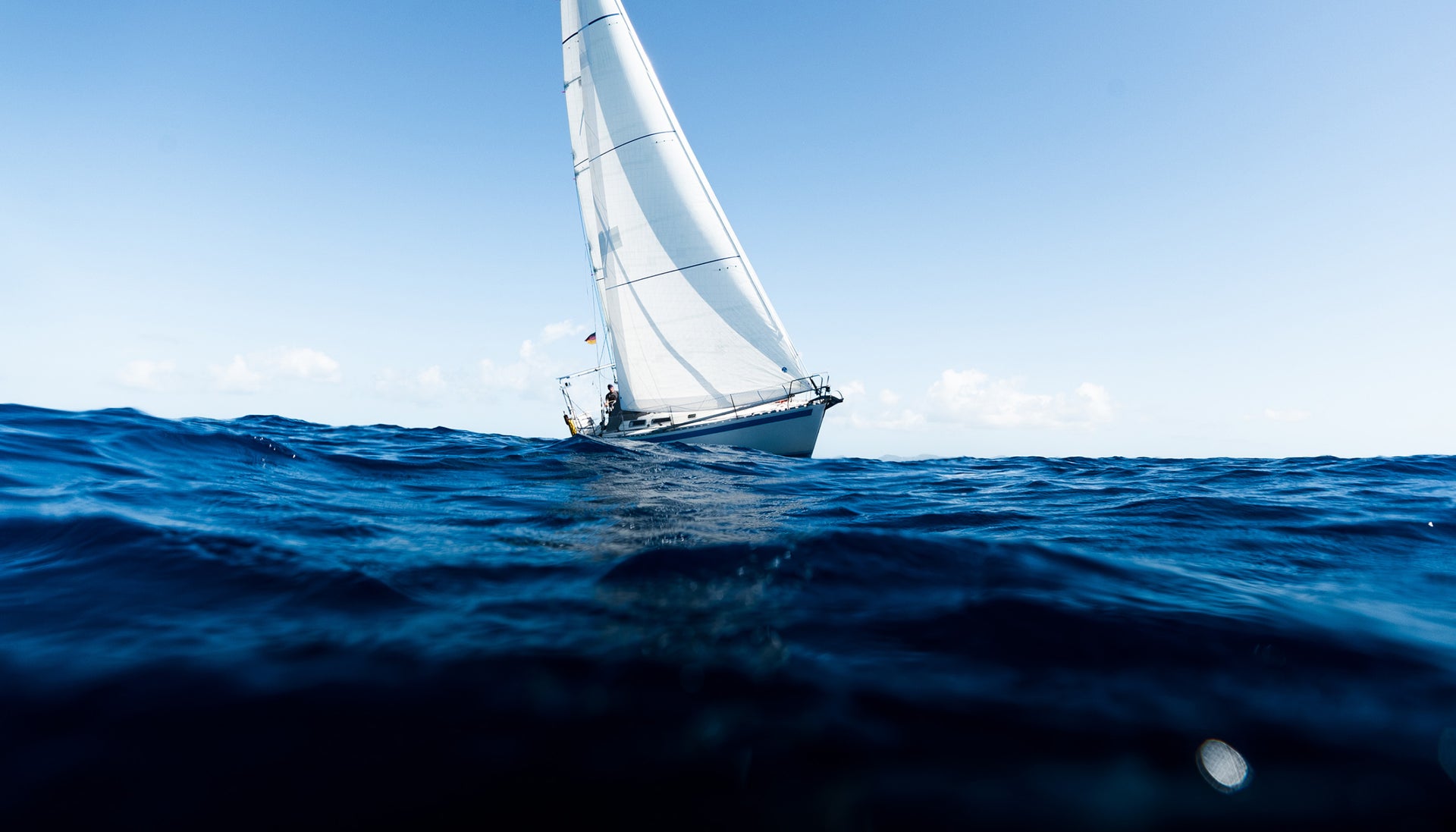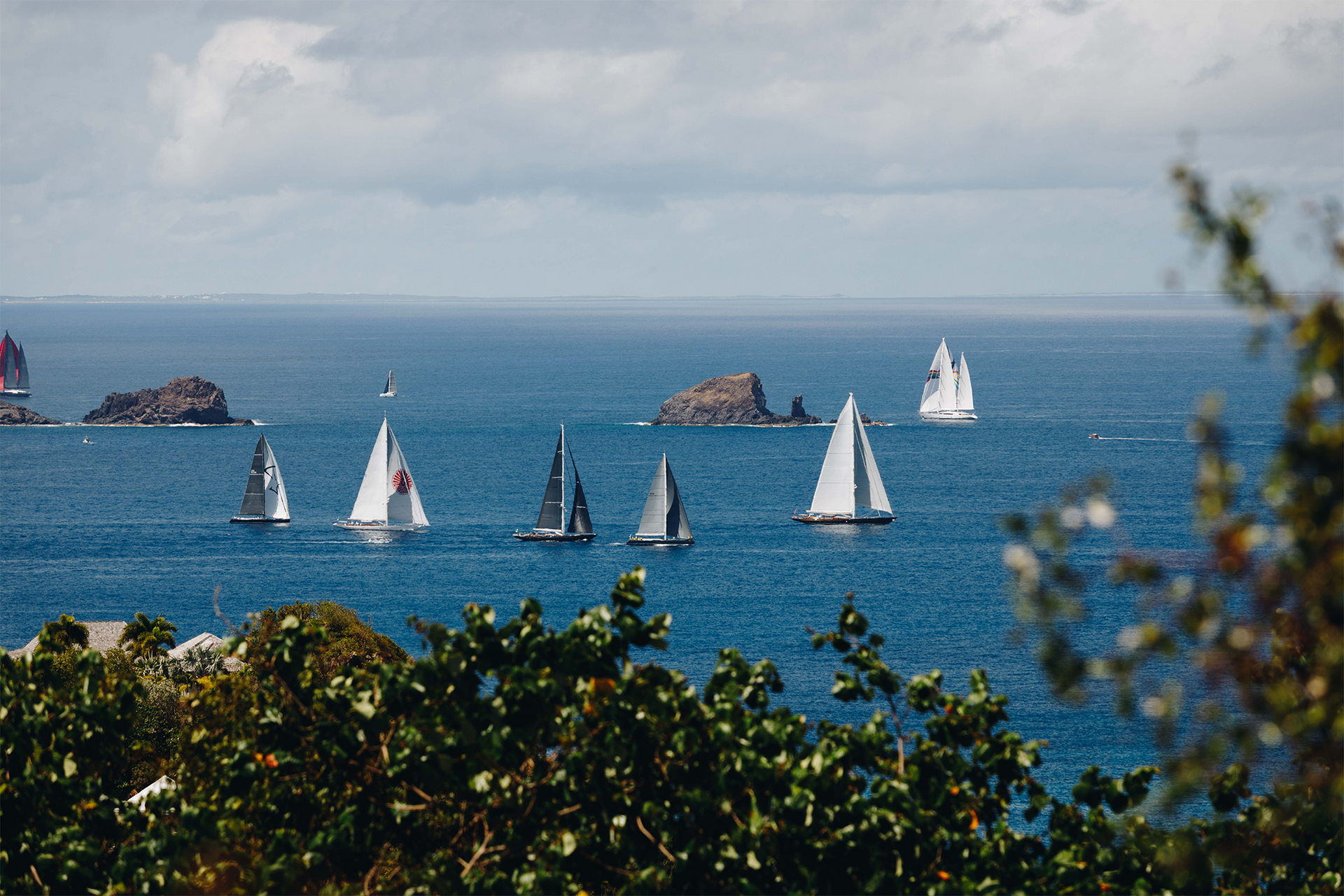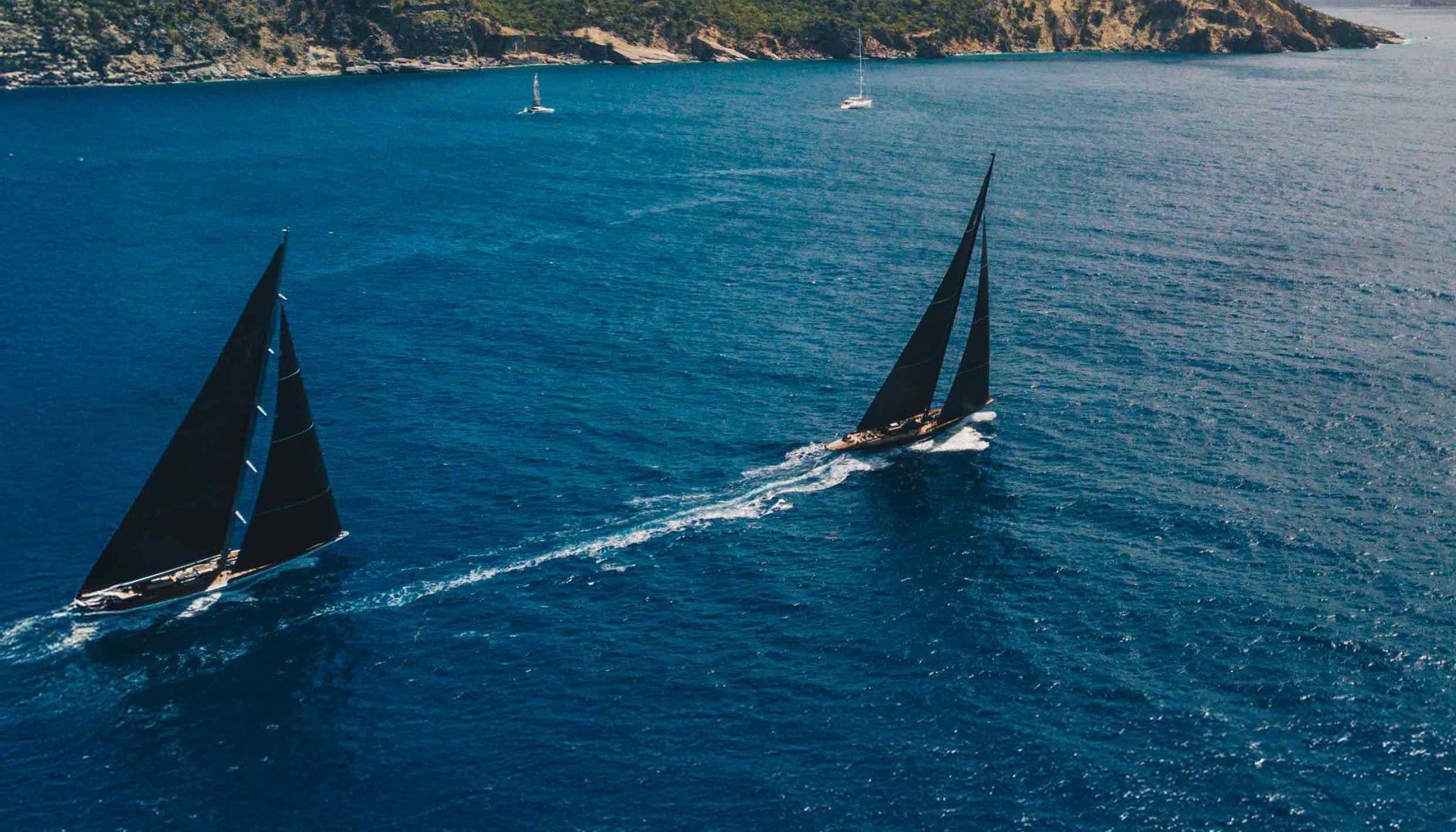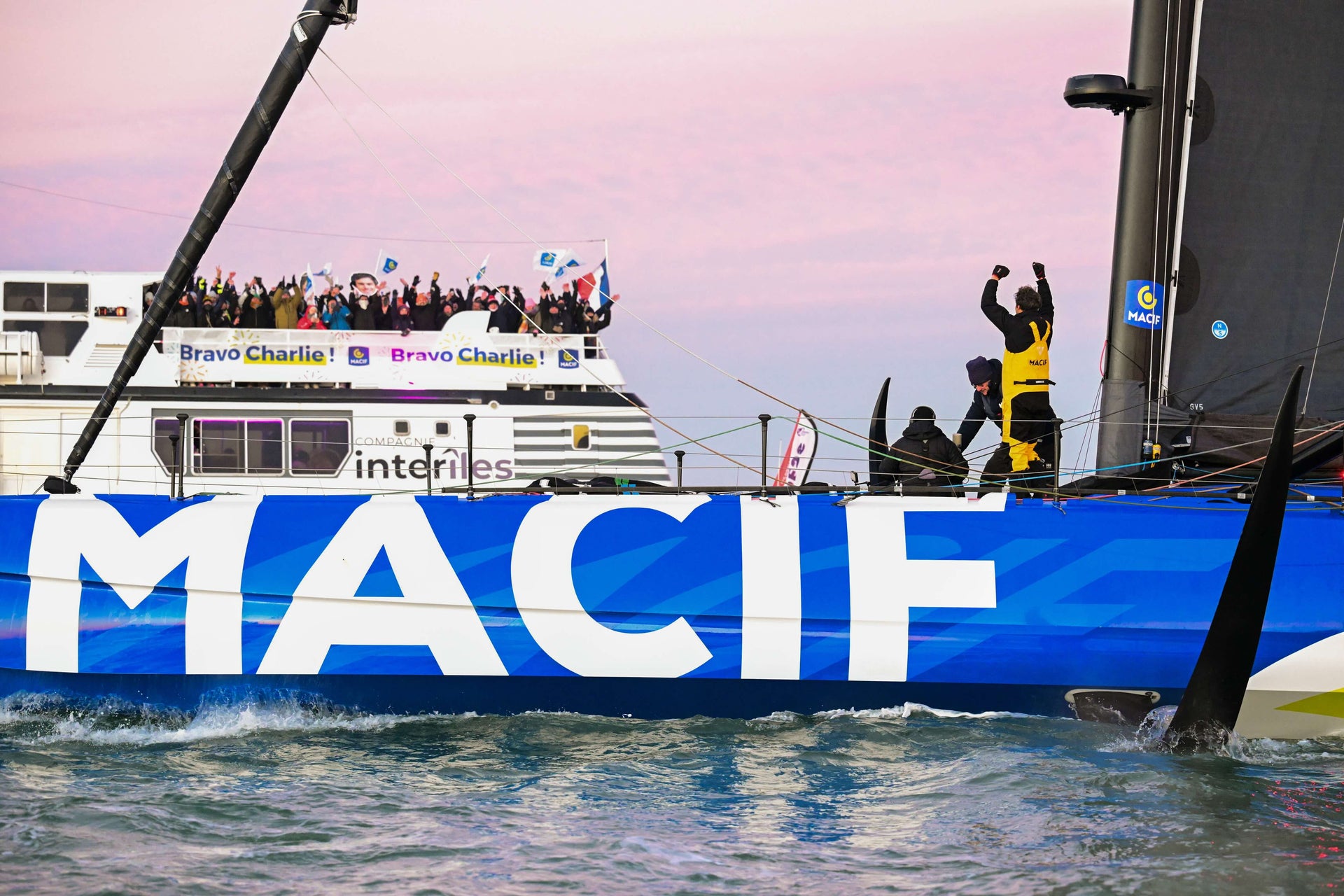PIC COASTAL CLASSIC
2020 PIC COASTAL CLASSIC
A Race To Remember

The 119 mile PIC Coastal Classic is an event many New Zealanders look forward to each year. With a start off Devonport Wharf and a finish at Russell Wharf, the course includes several memorable landmarks. With the typical strong southwesterly breeze, boats expect to finish around dusk. But this year, as dusk approached, not one team was anywhere close to the finish line, and the wind continued to decrease. Ocean Race 65 NZ Ocean Racing, the line honours winners, didn’t cross the finish line until early the next morning. Of the 170 teams that started, only 20 eventually made it to the finish line. Most dropped out at Cape Brett, knowing that the usual 20 mile final sprint up the coast—avoiding rocks, islands, and competition—was not to be this year.
North Sails expert Bianca Cook was onboard NZ Ocean Racing. “The PIC Coastal Classic was the first race for the boat since the end of the 2017/18 Volvo Ocean Race, and the first race for New Zealand Ocean Racing,” she said after the race. “Not quite the conditions everyone gets excited about, but we were extremely happy with the crew’s attitude. Our masthead code zero ended up being the sail for the race with a brief change to the J0 before Sail Rock, when the breeze picked up to 14 knots. We chose to sail outside Cape Brett, and was a park up… I had flashbacks to the doldrums, but the team kept patient and the breeze picked up enough to push us around the Brett. We managed to finish at 03:49am, the first monohull to win since 2009. We are extremely happy with the results: First boat to finish, first on handicap, and claiming the North Sails Trophy for First overall on PHRF Handicap.”

North Sails expert Andrew Wills was onboard the Melges 40 Checkmate. “This year’s Coastal Classic was unlike any other over the last 15 years. The traditional strong southwesterly breeze that would push you up the coast was replaced with a light northerly, which made for a long, slow upwind. The start of the race had a lot of tactical decisions and opportunity. As the day wore on, it was more of a long starboard tack. At times we were slightly cracked sheets and making good speed towards the finish line in Russell. But as night fell, the breeze died to pretty much nothing. The boats out further to sea seemed to do better, but still had to make the tricky transition into the bay towards the finish.”
“It was the first Coastal Classic for Melges 40s in New Zealand,” Wills explains. “I was lucky enough to sail as tactician for the RNZYS commodore, Aaron Young, and crew morale remained high despite the lack of wind. I was stoked to have been one of the few finishers in a real test of perseverance. Next year I am hoping for the traditional southwest blast up the coast!”

North Sails expert and designer Magnus Doole was onboard the Ker 40 Icebreaker. “We knew it was going to be a challenging day of gear changes with the opportunity to define the race once the sun began to set behind Whangarei Heads.” Despite overtaking and extending their sistership, Icebreaker stopped in the “parking lot at Cape Brett” early Saturday morning. “We made the difficult decision to retire given the forecast and non-sailing commitments for some of the crew; one consolation was to be the first boat in our division to get to dry land! Nevertheless, a fantastic race with a great group of people and plenty of stories to tell afterwards.”
North expert Richard Bicknell sailed on V5, an old TP52 with a canting keel, which also got stuck at Cape Brett and retired. “We had a great start and were really happy with the way we had the boat going on only our second sail. We’re looking forward to our next race.”

On Cation, a Roger Hill 18.5, North expert Matt Steven was thankful for his talented crew. Cation finished second in the multihull division. Matt commented, “We were lucky to have some of NZ’s top sailing talent including Murray Jones on tactics, and Owen Rutter who did an excellent job at the helm. We couldn’t have started the race much worse after a small 8.5 catamaran pinched us off at the boat-end, forcing us into a full circle and starting three minutes late! However, with our masthead J0, we powered back into the pack of other 55 to 65ft performance multihulls. Thanks to our self appointed chefs on board, Roger Hill and Simon Gundry, we were well fed going into the night with a full cooked meal served with silverware.
As Cation went into the night, their large tacking angles helped them establish decent speed. “There was more breeze offshore,” said Matt, “so we kept heading out to eventually overtake the whole fleet coming into Cape Brett, except for the Bianca and NZ Ocean Racing. As the Sun started to rise, we sailed into Russell with a jubilant crew– happy we made it. This was by far the longest Coastal Classic I have done, but also the best result!”
Congratulations to all competitors who finished the race, especially to NZ Ocean Racing for an outstanding debut! For more info about their sail choices, contact your local North Sails loft.
Contact Auckland Contact Bay of Islands


